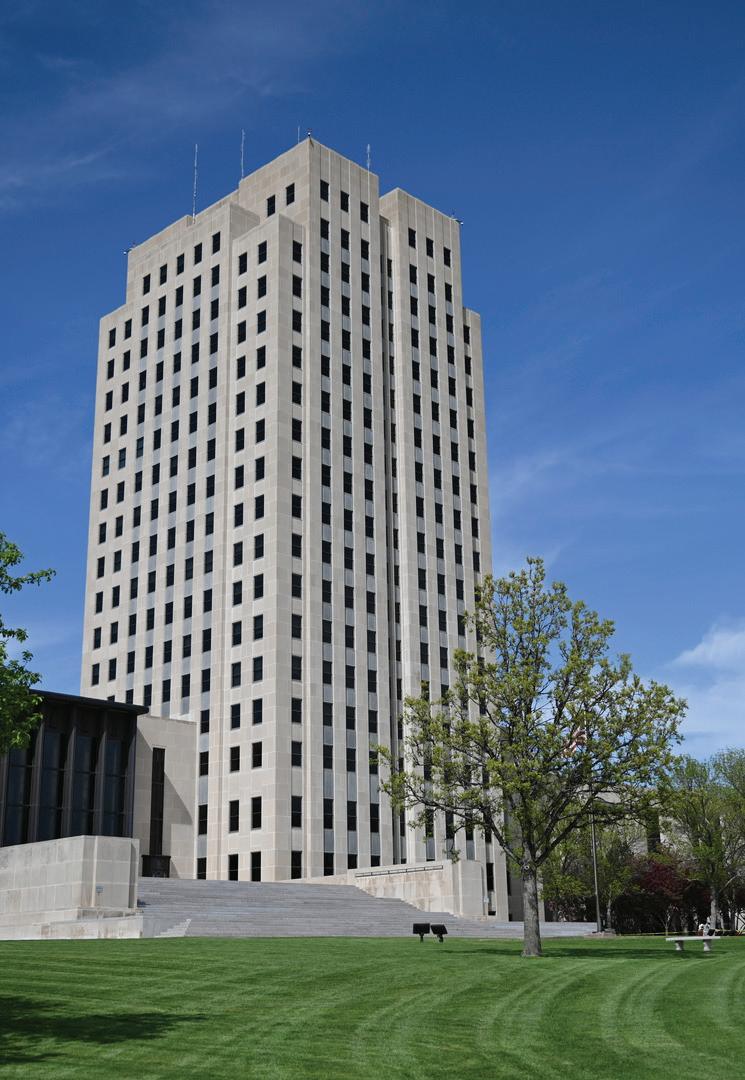
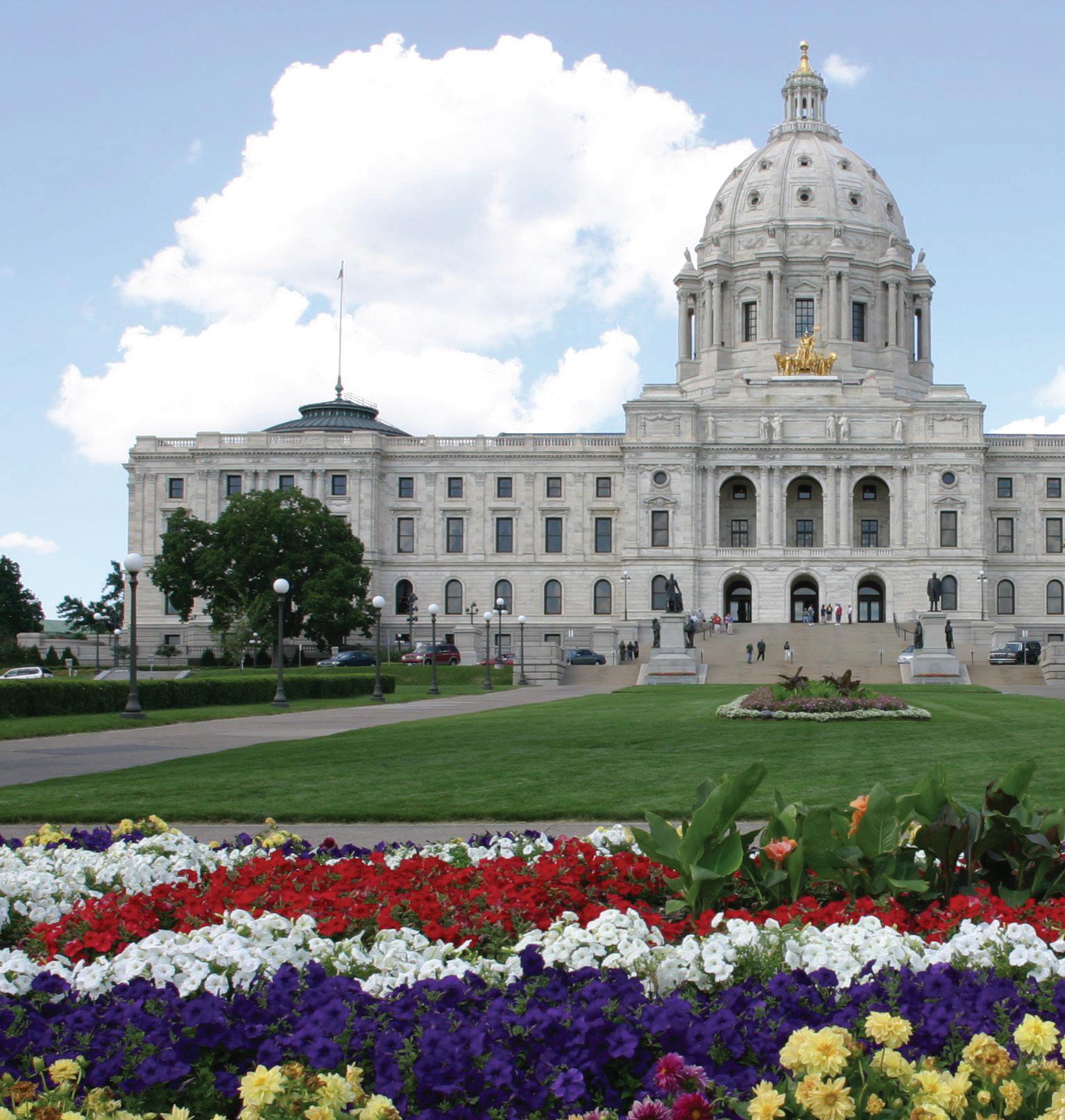



A REVIEW OF KEY BUSINESS LEGISLATION FROM THE 2025 MINNESOTA AND NORTH DAKOTA LEGISLATIVE SESSIONS.
Thank you to our Innovate28 investors for supporting this important work.




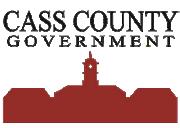
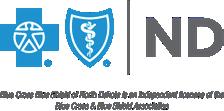







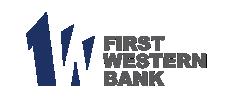






















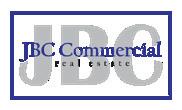





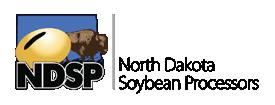











Advocacy isn’t just about policy. It’s about people, progress and the promise of what’s possible. As the collective voice for our region’s business community, we’re proud to share the work being done to protect your interests and strengthen the future of our economy.
Throughout the 2025 legislative sessions in both Minnesota and North Dakota, The Chamber remained focused on protecting our businesses by opposing burdensome mandates, advancing pro-growth policies and worked across state and party lines to remove barriers to success. Whether in Bismarck, St. Paul or the halls of Congress, our advocacy is rooted in bold, practical solutions that benefit our members and strengthen our economy.
Inside this Legislative Review Guide, you’ll find a clear breakdown of The Chamber’s top priorities, legislative outcomes and voting records from local policymakers on key business-related issues. While this publication is not a political endorsement, it is a reflection of transparency and accountability, and a way to recognize those who stood with our business community on the issues that matter most.
With more than 1,600 member businesses representing over 100,000 employees, The Chamber has become one of the most influential advocacy organizations in the region. Our role goes beyond tracking legislation; we work to influence and improve it. And thanks to continued member support, specifically through Innovate28, we’ve expanded our capacity to engage in more legislation, build new coalitions and elevate the voice of our community.
This session, The Chamber:
• Tracked over 800 pieces of legislations,
• Provided testimony on over 50 bills,
• Hosted over 100 members at our days at the capitol,
• And appeared over 20 times in local news stories and media interviews
Public policy affects every employer, employee and entrepreneur in our region. That’s why our advocacy efforts are driven by the belief that an informed, united and active business community is one of the most powerful forces for lasting change.
Together, we can turn policy into progress and ensure our region remains a place where business and community thrive.
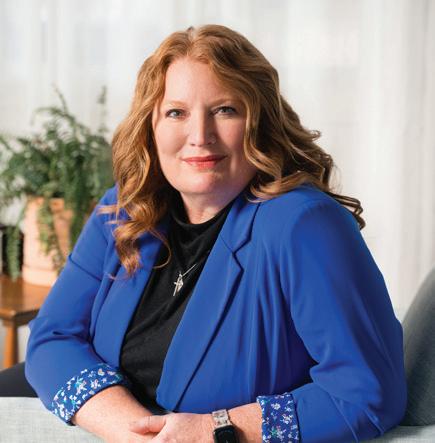


Made up of business and community leaders from across the region, the Public Policy Committee is The Chamber’s advocacy arm. The Committee is dedicated to advancing sound polices that foster a stable environment for businesses and the community to thrive.
The group drafts stances and legislative priorities, acting on individual policies as they become relevant. These recommendations are submitted to the board for approval, where they become official Chamber positions.
Once the Board of Directors has voted on an official stance, The Chamber takes action. We engage with public officials to represent business interests, raise awareness and build impactful coalitions. We also empower local businesses by providing essential resources like policy briefs, talking points, legislative contacts and bill updates.

The Board of Directors, comprised of diverse leaders in our local business community, is the policymaking body for The Chamber. They shape and execute the organization’s vision. Once the Public Policy Committee makes a recommendation for a policy stance, the Board reviews and considers whether to adopt it as an official Chamber position.
Given the fast-paced nature of policy, the Board may address urgent issues directly without formal recommendation from the Public Policy Committee.
This publication highlights key legislation The Chamber prioritized during the 2025 Minnesota and North Dakota Legislative Session. These are the issues we dedicated the most time and resources to this session. Whether through testimony, member engagement, or direct lobbying. Please note this list is not exhaustive, and does not endorse any political candidate, party, or organization.

These area legislators demonstrated a strong commitment to the FMWF community and exemplary leadership throughout the 2025 legislative session by championing many of The Chamber’s legislative priorities. While the FMWF Chamber does not endorse candidates, we applaud these members of our local legislative delegation for their leadership. As a growing region, these champions are essential to the continued vibrancy of our region’s economy.
Listed by district | This does not constitute an endorsement of any political candidate, party or organization.
REPRESENTATIVE STEVE SWIONTEK – DISTRICT 10
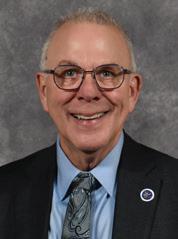
Vice Chair of the House Appropriations Committee
– Education and Environment Division
• Championed numerous priorities, including critical funding for water infrastructure, homelessness, higher education, and workforce and economic development programs.
SENATOR JUDY LEE – DISTRICT 13
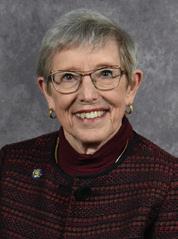
Chair of the Senate Human Services Committee
• Championed numerous priorities, including meaningful childcare reforms and initiatives, funding to strategically address homelessness, and was pivotal in the defeat of the bill to eliminate daylight savings time.
REPRESENTATIVE AUSTEN SCHAUER – DISTRICT 13

Chair of the House Government and Veterans Affairs Committee
• Championed numerous priorities, including funding for research and technology and the Fargo National cemetery, and was pivotal in the defeat of the Defend the Guard bill.
SENATOR KATHY HOGAN – DISTRICT 21
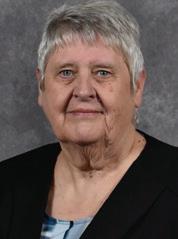
Senate Minority Leader
• Championed numerous priorities, including meaningful childcare reforms and initiatives.
REPRESENTATIVE BRANDY PYLE – DISTRICT 22
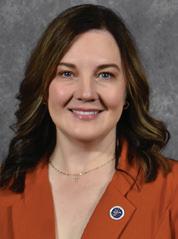
• Championed numerous priorities, including critical funding for generational airport projects, housing, and energy infrastructure.
SENATOR MARK JOHNSON – DISTRICT 1
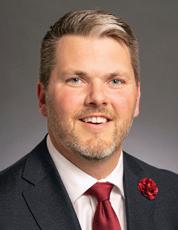
Senate Minority Leader
• Championed numerous priorities, including reforms to business mandates, state regulation and tax policy.

REPRESENTATIVE JONATHAN WARREY – DISTRICT 22

Chair of the House Industry, Business, and Labor Committee
• Championed numerous priorities including the establishment of an office of entrepreneurship, defeating Sunday closure laws, and blocking the repeal of the office of legal immigration.
SENATOR KRISTIN ROERS – DISTRICT 27
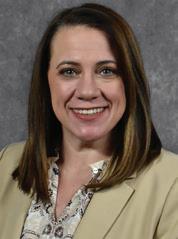
Chair of the Senate State and Local Government Committee
• Championed numerous priorities, including licensure reforms and was pivotal in the defeat of various foreign ownership bills and the bill to eliminate daylight savings time.
REPRESENTATIVE GREG STEMEN – DISTRICT 27
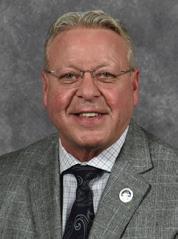
Vice Chair of the House Appropriations
– Human Resources Division
• Championed numerous priorities, including critical funding to strategically address homelessness and public safety.
SENATOR JOSH BOSCHEE – DISTRICT 44
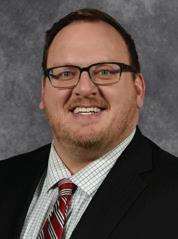
Senate Assistant Minority Leader
• Championed numerous priorities, including critical funding for city transit and workforce programs.
SENATOR RON SORVAAG – DISTRICT 45
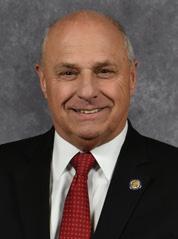
Chair of the Senate Appropriations Committee
– Education and Environment Division
• Championed numerous priorities, including critical funding for water infrastructure, higher education, research and technology, housing, and energy infrastructure.
REPRESENTATIVE JIM JOY – DISTRICT 4B
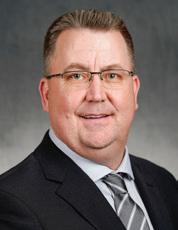
Assistant House GOP Floor Leader
• Championed numerous priorities, including reforms to business mandates, and tax policy and funding for water infrastructure.
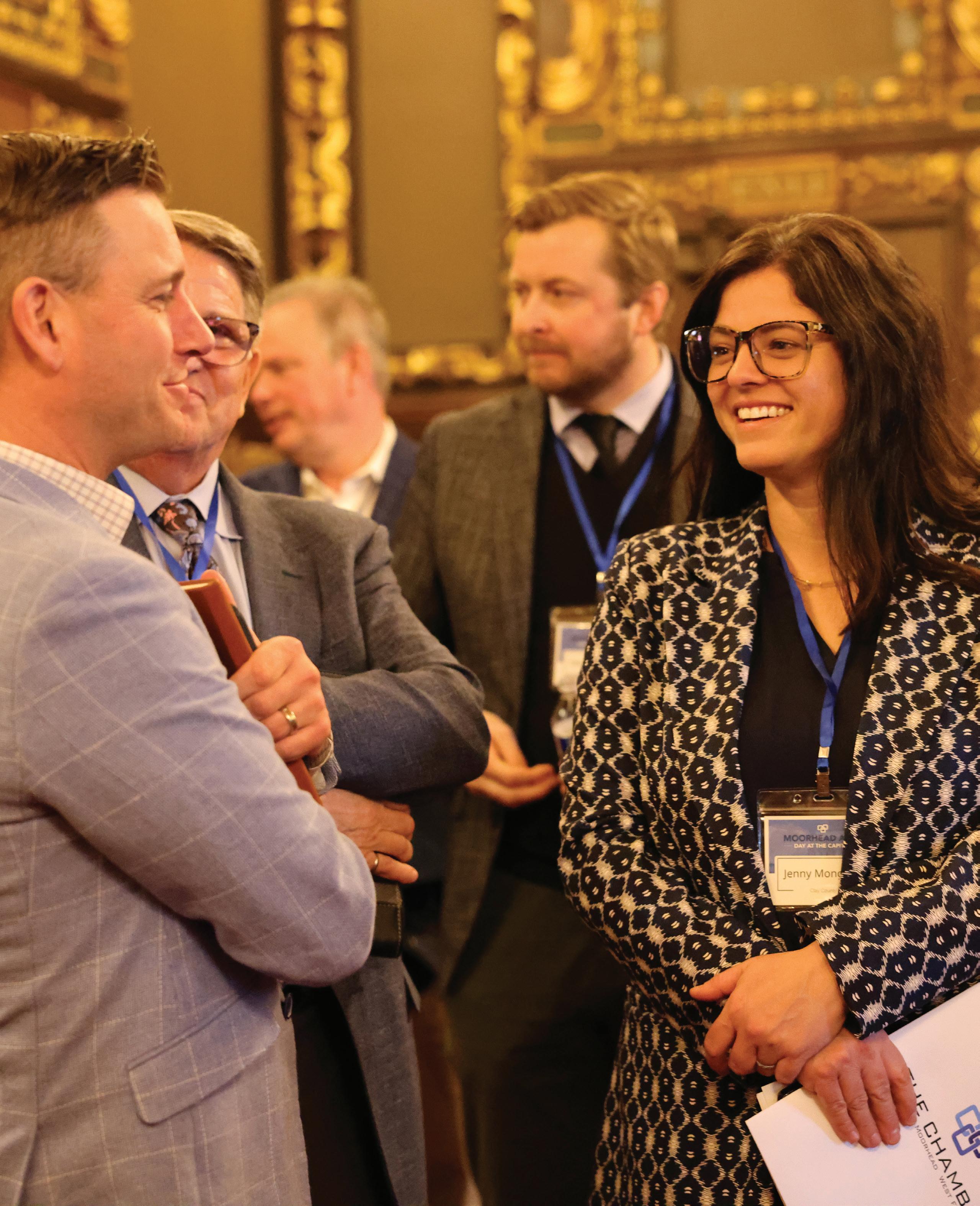

• Continue critical investments into regional-based workforce solutions that foster recruitment, acclimation, development and retention.
• Permit flexibility throughout the K-12 educational system to allow schools to address critical funding deficits with restricted funds.
• Expand statewide investments into Career Workforce Academies and work-based learning opportunities.
• Reform the Paid Family and Medical Leave Act, Earned Sick and Safe Time, and other business mandates, to best accommodate businesses and address their concerns.
• Reform the state’s tax and regulatory environment to increase Minnesota’s global competitiveness.
• Enhance programs and funding opportunities to support the Downtown Center redevelopment in Moorhead and the development of a Cultural Mall.
• Secure funding for flood mitigation projects throughout Clay County, specifically the needs for completing the FM Diversion Project.
• Support funding for post-secondary institutions to improve campus infrastructure, enhance curriculum and attract and retain students.
• Enhance funding for essential child care programs, grants and initiatives that increase access to affordable and quality child care services.
• Expand investments into programs and incentives that promote the development of diverse, affordable and long-term housing solutions.
• Ensure polices, programs, initiatives and incentives are comprehensive and inclusionary of Greater Minnesota and recognize border cities, to keep Minnesota competitive.
• Support programs and incentives that enhance economic development and foster business growth.
• Secure funding for a Psychiatric Residential Treatment Facility in Clay County.
• Expand funding for the Heartland Trail project from Moorhead to Park Rapids.
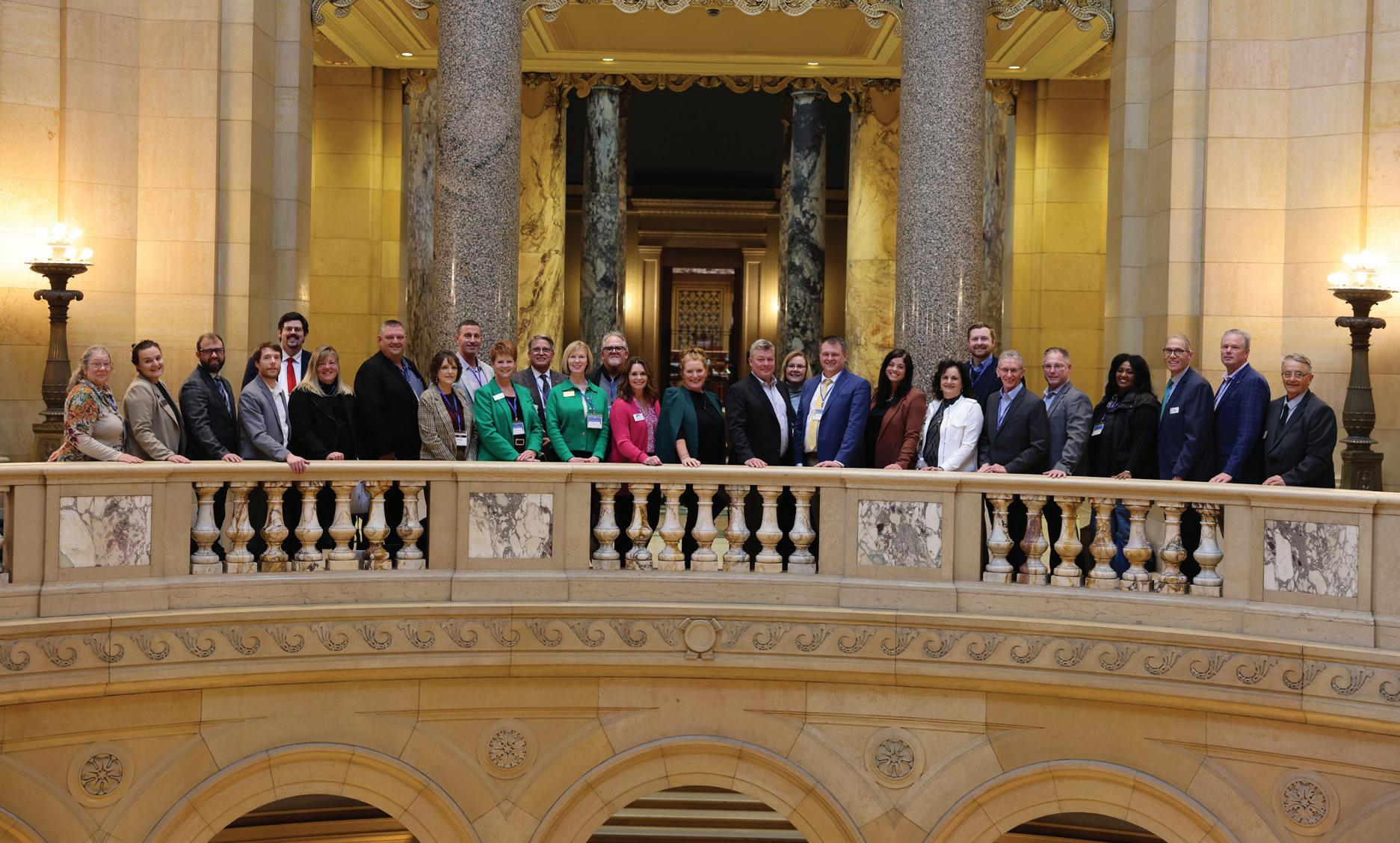
This year, the Minnesota Legislature was filled with complexity and constantly changing dynamics – The Chamber was there every step of the way to advocate for our community’s priorities. Throughout the 2025 session, the House of Representatives was tied (67-67) and Senate DFL possessed a one-seat majority (3433). Additionally, the state’s budget projections released at the beginning of the legislative session indicated looming budget shortfalls. Lastly, this session the legislature was required to pass a state budget. These narrow margins, plus power sharing agreements, budget shortfalls and partisan budget priorities, made it extremely difficult to get bill hearings and more importantly pass legislation – which ultimately led to few bills being passed in the regular session and a handful of omnibus bills passing during the special session.
Ultimately, The Chamber was disappointed with the results of the regular and special legislative sessions. While some of our priorities were included in the special session omnibus bills, they were often diluted and had minimal impact. This was a result of the needing to pass a state budget, in a closely divided legislature, before a government shutdown. For example, bills like the Omnibus Jobs, Labor Economic Development policy and appropriations bill, which funds state agencies like the Department of Employment and Economic Development and the Department of Labor. This omnibus finance and policy bill included minor adjustments to Minnesota’s Earned Safe and Sick Time (ESST) and Paid Family and Medical Leave Program (PFML) but also included construction permit fee increases as well as additional time requirements for employee rest and meal breaks. Given the negative provisions of the bill and minimal reforms to ESST and PFML, The Chamber did not support this bill or any bills throughout the special session.
The Minnesota portion of the legislative review guide only included bills that we supported during the regular legislative session. Ultimately, due to the diverse and complex legislative landscape of this Minnesota Session, none of these items passed individually and only a few were included in omnibus bills.

The following bills were introduced but were never voted upon individually or were included into an Omnibus bill. These bills were pivotal issues for The Chamber.
= Sponsored legislation aligned with The Chamber’s Priorities = Sponsored legislation unaligned with The Chamber’s Priorities = Was not a sponsor of this legislation
This legislation did not pass
This legislation would have delayed the implementation date of Minnesota’s 20-week Paid Family and Medical Leave Program from January 1, 2026, to January 1, 2027.
The Chamber supported this legislation
The Chamber supported this legislation as a delay would have allowed businesses additional time to gain greater clarification on the program’s rules and requirement from the Department of Employment and Economic Development (DEED), provided DEED additional time to ensure a successful deployment of the program, and granted the legislature additional time to make pragmatic reforms to the program.
This legislation did not pass; however moderate adjustments were included in the Omnibus Environmental and Natural Resources Bill signed into law by Governor Walz.
This legislation would have streamlined Minnesota’s environmental permitting process by setting permit deadlines, separating construction and operations permits and increasing agency communication with applicants. It also included changes to signature thresholds for Environmental Assessment Worksheets, expanded reporting requirements and frequency, and created a new position within the Department of Employment and Economic Development to help businesses navigate the permitting process.
The Chamber supported this legislation
The Chamber supported this legislation to spur additional economic development throughout Minnesota by reducing burdensome permitting delays and provide businesses with greater certainty and clarity.

This legislation did not pass
This legislation would have modified the state’s existing income tax credit for the production of sustainable aviation fuel by increasing the credit allocation for fiscal years 2026 and 2027, and extending the availability of the credit through fiscal year 2035.
The Chamber supported this legislation
The Chamber supported this legislation because Sustainable Aviation Fuel is an emerging industry and this bill would have spurred significant economic development in the region, by providing incentives to build a sustainable aviation fuel facility in Moorhead – bringing hundreds of jobs and significant economic impact.
This legislation did not pass; however, moderate adjustments were included in the Omnibus Jobs and Labor Bill signed into law by Governor Walz. This bill would have adjusted Minnesota’s Earned Sick and Safe Time law by, excluding some farm workers and small businesses as eligible employees and employers, changing notice requirements and documentation rules for unexpected leave. Additionally, this bill would have allowed employees to find shift coverage, provided further clarification when applying ESST with other paid leave, and clarifies how time off is advanced based on an employee’s anticipated hours.
The Chamber supported this legislation
The Chamber supported this legislation as it provides greater clarity and flexibility for employers, helping to reduce administrative burdens and costs.
This legislation did not pass; however, moderate adjustments were included in the Omnibus Jobs and Labor Bill signed into law by Governor Walz.
This legislation proposed several changes to the Minnesota Paid Family and Medical Leave Law, which is set to go into effect January 1 of 2026. It would have excluded certain groups of workers from eligibility, such as some covered by collective bargaining agreements, elected officials, short-term government workers and work-study students. It narrows the definition of family, expands definition of seasonal worker and allows parts of the program to be privately managed. The bill also changes how benefits are calculated, shortens the maximum leave period and adjusts the premium rates for small employers.
The Chamber supported this legislation
The Chamber supported this legislation because it addressed several significant concerns of the private sectors and reduced the strain on businesses.
This legislation did not pass; however, $9 million for statewide flood mitigation projects was included in the Bonding Bill signed by Governor Walz. This legislation included $60.4 million in bond funding to complete flood mitigation projects in the City of Moorhead, Clay County, and the Buffalo-Red River Watershed District to complete the Minnesota components of the FM Area Diversion project.
The Chamber supported this legislation
The Chamber supported this legislation because it would have provided vital funding to finalize the FM Area Diversion project, delivering permanent flood protection for our region. This investment is critical to safeguarding homes, businesses and infrastructure from future flood events.
This legislation did not pass
This legislation proposed enhancements to the Border City Enterprise Zone Program by expanding the kinds of businesses that qualify and allows any portion of Moorhead and Dilworth to be designated as part of the zone. Additionally, the bill increased the income tax credit for employers in non-construction industries and specifies that some land acquisition costs may be eligible for reimbursement.
The Chamber supported this legislation
The Chamber supports this legislation because it strengthens a vital economic development tool, keeping our region competitive, encouraging investment and helping build stronger, more vibrant business communities.
This legislation did not pass; however, funding was appropriated in an Omnibus Health and Human Services Bill.
This legislation would have allocated $1.2 million to Clay County to remodel and convert the West Central Regional Juvenile Center’s nonsecure unit into an 18-bed psychiatric residential treatment facility for individuals under 21.
The Chamber supported this legislation
The Chamber supported this legislation because of the urgent need for mental health care in our region. Building this facility ensures juveniles can receive the treatment they need close to home, without having to leave the region or state.

This legislation did not pass; however, funding is available in the Omnibus Legacy Finance bill signed into law by Governor Walz.
This legislation would have allocated funding to the Immigrant Development Center to establish a cultural mall in Moorhead, offering affordable retail space, a marketplace for diverse small businesses and a welcoming venue for cultural events, education and community engagement.
The Chamber supported this legislation
The Chamber supported this legislation because it would fund the creation of a cultural mall in Moorhead, providing over 30 immigrant- and BIPOC-owned businesses with a vital hub that fosters entrepreneurship, drives economic development, and celebrates cultural inclusion.
This legislation did not pass; however, this was included in the Omnibus Tax bill and signed into law by Governor Walz.
This legislation would extend the Tax Increment Financing District No. 31 (Downtown Redevelopment) in Moorhead for an additional 5 years.
The Chamber supported this legislation
The Chamber supported this legislation as it provides the community with adequate time and resources to support sustainable growth of commercial and residential spaces during the historic transformation of Downtown Moorhead.
This legislation did not pass
This legislation appropriated $25.7 million from the bond proceeds to Clay County for the construction, furnishing and equipping of a new nonsecure juvenile detention facility (NSJF) in the city of Moorhead.
The Chamber supported this legislation
The Chamber supported this legislation because a portion of the current NSJF building is being converted into a secure Psychiatric Residential Treatment Facility (PRTF) and both facilities are vital to creating the robust healthcare infrastructure necessary to address the mental health needs of juveniles within our community, region, and state.
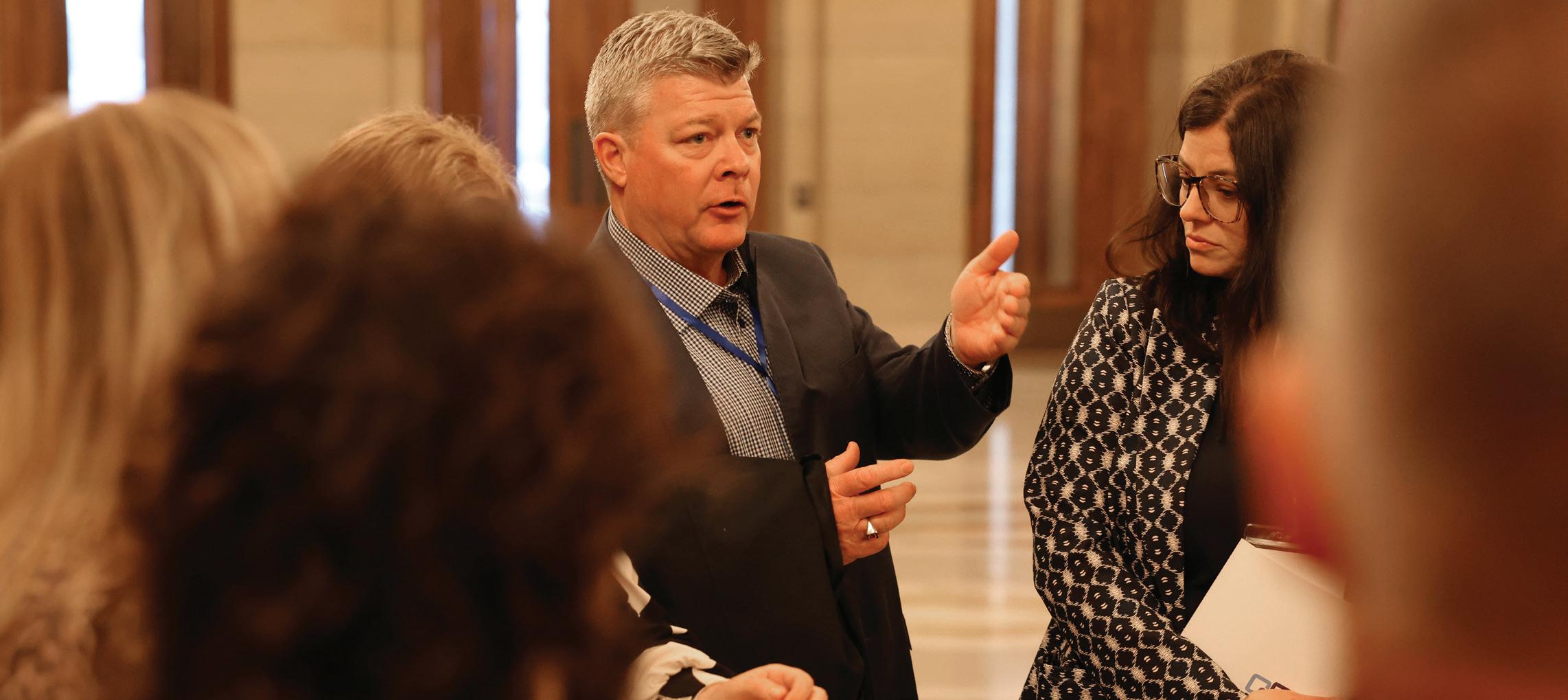



• Continue crucial investments into regional-based workforce solutions that foster recruitment, acclimation, development and retention.
• Amplify current work-based learning programs and incentives that enhance career exploration and awareness.
• Enhance funding for essential child care programs, grants and initiatives that increase access to affordable and quality child care services.
• Continue investments into programs and incentives that enhance economic development and foster business growth.
• Continue support for vital research and technology programs and initiatives that diversify the state’s technology sector, including agriculture technology, uncrewed aerial systems, autonomous technologies, robotics, artificial intelligence, data management and advanced computing.
• Ensure the Higher Education and K-12 funding formulas provide adequate funding for educational institutions.
• Support funding for higher education institutions to augment their curriculum to further align with the current need of high-demand industries.
• Secure funds to complete the Red River Valley Water Supply Project.
• Secure funds to complete the renovation and expansion of the Fargo Hector International Airport.
• Prioritize essential infrastructure and transportation investment that reflect the geographic and demographic growth of the state.
• Expand investments into programs and incentives that promote the development of diverse, affordable and long-term housing solutions.
• Support strategic investments into quality-of-life assets and placemaking infrastructure that enhance the state’s attraction and retention efforts.
• Support opportunities to strengthen the state’s critical energy and agriculture industries.
• Evaluate the state’s existing tax structure and implement policies and initiatives that prioritize the state’s global competitiveness and reflect a fair and balanced tax system.
• Provide funding for the full completion of existing Career Academy projects for expanded career awareness and training opportunities.
• Expand access and funding for dual credit programs in order to equip students with advanced educational opportunities and strengthen workforce development.
• Continue vital support for the state’s military units and their community’s Base Retention Grants that support strategic awareness.
• Expand financial investments into programs and initiatives that reduce homelessness, suport at-risk populations adn provide assistance to the unhoused community.
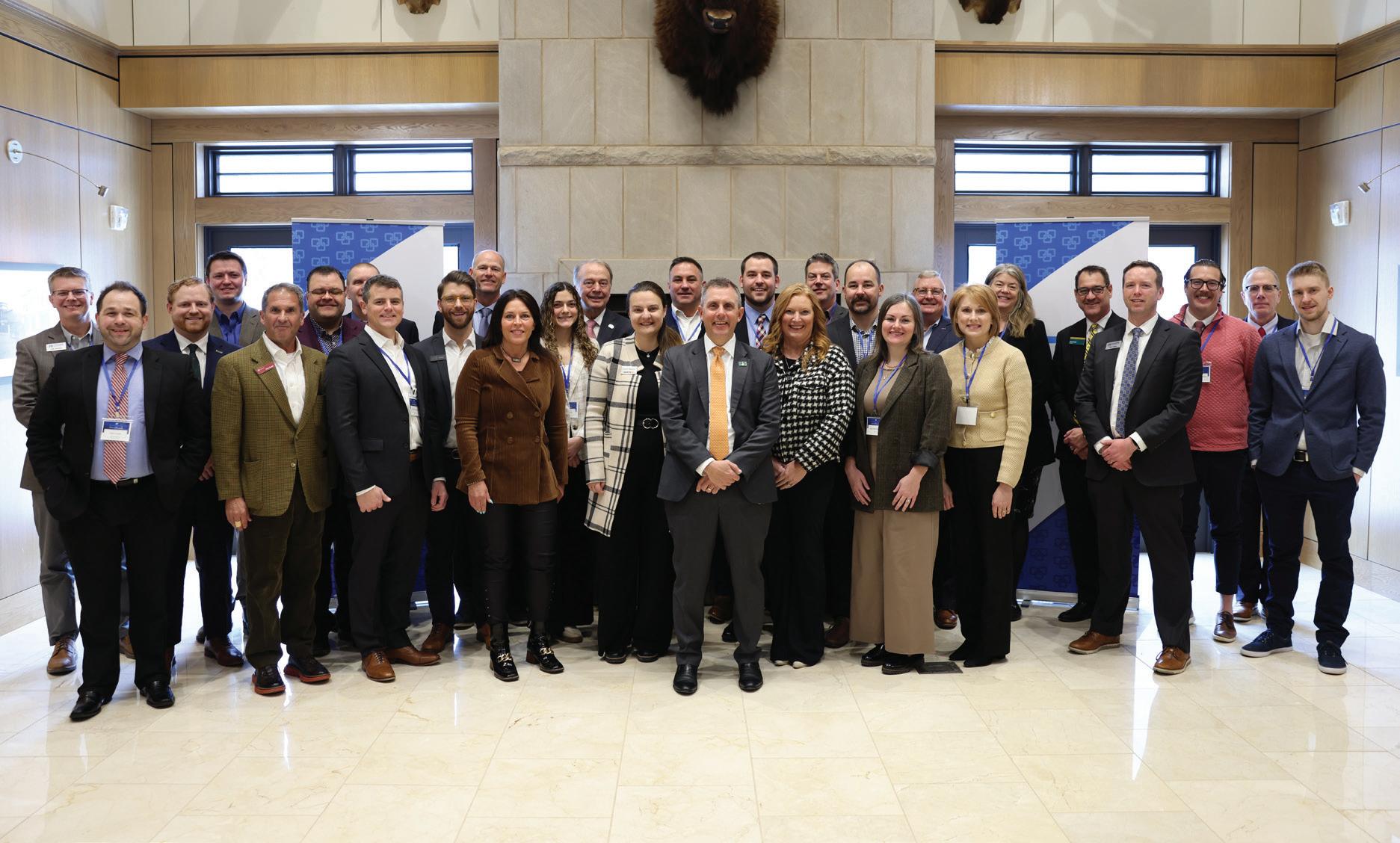
This year’s North Dakota Legislative Assembly delivered meaningful wins for our community, and The Chamber was engaged every step of the way, advocating for policies to strengthen our region’s economy and workforce.
The 2025 session brought both opportunities and challenges. Lawmakers made progress on several of the region’s top priorities but also considered proposals that threatened North Dakota’s business climate. Through strong partnerships with our members, coalition-building and active engagement at the Capitol, The Chamber successfully advanced key initiatives while defeating several harmful measures.
The Chamber was pleased to secure meaningful investments in priorities such as the Red River Valley Water Supply Project, Fargo Hector International Airport expansion and NDSU’s Research and Technology Park. However, other critical needs — including workforce development, housing, homelessness and child care — did not receive the same level of support.
Looking ahead, The Chamber remains committed to identifying and advancing legislative solutions that address these persistent challenges while capitalizing on strategic opportunities to drive regional growth and prosperity. While much work remains, we are proud of what was accomplished this session and grateful for the collaboration of our members, partners and local legislators.


The following bills failed to pass.
10 Rep. Jared Hendrix
10 Rep. Steve Swiontek
10 Sen. Ryan Braunberger
11 Rep. Liz Conmy
11 Rep. Gretchen Dobervich
11 Sen. Tim Mathern
13 Rep. Jim Jonas
13 Rep. Austen Schauer
13 Sen. Judy Lee
16 Rep. Ben Koppelman
16 Rep. Andrew Marschall
16 Sen. David Clemens
21 Rep. LaurieBeth Hager
21 Rep. Mary Schneider
21 Sen. Kathy Hogan
22 Rep. Brandy Pyle
22 Rep. Jonathan Warrey
22 Sen. Mark Weber
27 Rep. Josh Christy**
27 Rep. Timothy Brown**
27 Rep. Gregory Stemen
27 Sen. Kristin Roers
41 Rep. Karen Grindberg
41 Rep. Jorin Johnson
41 Sen. Kyle Davison
44 Rep. Austin Foss
44 Rep. Karla Rose Hanson
44 Sen. Josh Boschee
45 Rep. Carrie McLeod
45 Rep. Scott Wagner
45 Sen. Ronald Sorvaag
46 Rep. Jim Kasper
46 Rep. Desiree Morton
46 Sen. Michelle Powers = Aligned with The Chamber’s Priorities = Unaligned with The Chamber’s Priorities = Absent, excused, or not voting on this bill * The bill was not heard by both legislative bodies. ** Due to the death of Rep. Christy, Rep. Brown was appointed to fill the remainder of his term.

Passed and signed into law by Governor Armstrong
This bill appropriates funding to the Department of Health and Human Services to support and maintain its operations and programs. The bill included several provisions focused on child care, including continued funding for the Employer Match Program ($2.2M) and the establishment of Infant and Toddler Provider Grants ($11M).
The Chamber supported this legislation
The Chamber supported this legislation because it provides critical investments to remedy the state’s child care challenges, by providing additional support to address the affordability of child care, which directly associated with the state’s workforce challenges.
Passed and signed into law by Governor Armstrong
This legislation allocated funding to the Department of Water Resources to support and maintain its operations and programs.
The Chamber supported this legislation
The Chamber supported this legislation as it included $205 million in funding for the Red River Valley Water Supply Project, which will provide long-term supply of water for the region.
Passed and signed into law by Governor Armstrong
This legislation establishes a comprehensive study of child care provider licensing, child care service programs, and establishes a Child Services Advisory Committee during the interim.
The Chamber supported this legislation
The Chamber supported this legislation because the findings of the studies and working group will provide invaluable insights to guide statewide child care regulations, initiatives, and programs, strategically addressing challenges and building a more robust, effective child care infrastructure.
Passed and signed into law by Governor Armstrong
This legislation appropriates $1.5 million to the Agriculture Commissioner to provide grants to county agriculture fair associations across the state for the planning, design and construction of infrastructure projects.
The Chamber supported this legislation
The Chamber supported this legislation because fairgrounds play a vital role in generating economic activity, offering entertainment and educational opportunities, and serving as a valuable placemaking amenity for our community.
Passed and signed into law by Governor Armstrong
This legislation appropriates critical funding to support higher education across the state. This includes $10 million for Workforce Education Innovation Grant, $16 million for North Dakota State University’s New Horizons Program, and $24.76 million for Challenge Grants. In addition, the legislation calls for a comprehensive evaluation of the current higher education funding formula.
The Chamber supported this legislation
The Chamber supported this legislation because it makes critical investments in North Dakota’s higher education institutions, helping to meet regional and statewide workforce needs.
Passed and signed into law by Governor Armstrong
This legislation allocated funding to the North Dakota Aeronautics Commission to support and maintain its operations and programs. Specifically, this legislation allocated $90 million in funding for generational airport projects across the state.
The Chamber supported this legislation
The Chamber supported this legislation because it included $45 million for the expansion and renovation project at Fargo’s Hector International Airport. This project plays a vital role in boosting our regional and state economy, encouraging tourism and increasing our ability to compete on a regional and global scale.

Passed and signed into law by Governor Armstrong
This legislation appropriates funding to the North Dakota Industrial Commission and agencies under its control to support and maintain their respective operations and programs. The bill included critical funding for housing and homelessness, such as investments into the North Dakota Housing Finance Agency’s Housing Incentive Fund ($25M) and Homelessness Programs ($10M). Additionally, the bill included several provisions on energy, including funding to support the development of a natural gas pipeline to Eastern North Dakota.
The Chamber supported this legislation
The Chamber supported this legislation because it makes important investments in programs that address statewide housing and homelessness challenges while also supporting initiatives that drive economic development across North Dakota.
Passed and signed into law by Governor Armstrong
This legislation appropriates funding to the Department of Commerce to support and maintain their respective operations and programs. The bill appropriated funding to several of the major statewide programs, including:
• Destination Development ($15M),
• Base Enhancement Grants ($1M),
• Children’s Education Science Centers ($2M),
• Operation Intern ($3M),
• Regional Workforce Impact Program ($5M),
• Technical Skills Grants ($1M),
• Global Talent Office ($1M),
• LIFT Fund ($10M),
• Development Fund ($50M total),
• Autonomous Agriculture Grants ($7.5M),
• and Beyond Visual Line of Sight ($15M).
The Chamber supported this legislation
The Chamber supported this legislation because it provides critical funding for key workforce, economic development, and community initiatives that strengthen the vitality and vibrancy of our region and state.
Passed and signed into law by Governor Armstrong
This legislation appropriates funding to the Department of Career and Technical Education to support and maintain its operations and programs.
The Chamber supported this legislation
The Chamber supported this legislation because of the critical role CTE plays in workforce development.
Passed and signed into law by Governor Armstrong
This legislation expands Skilled Workforce Loan Repayment and Scholarship Programs by extending eligibility to individuals living within 50 miles of North Dakota and who work in the state in a high-demand or emerging occupation.
The Chamber supported this legislation
The Chamber supported this legislation because it enhances program flexibility, promotes workforce development and increases access to critical financial resources—particularly benefiting residents of border communities.
Passed and signed into law by Governor Armstrong
This legislation appropriated $10 million in funding to support the transformation of NDSU’s Research and Tech Park.
The Chamber supported this legislation
The Chamber supported this legislation because it provides essential funding to expand North Dakota’s research and innovation ecosystem, creating opportunities to attract new companies and investments to the state. The NDSU Research and Technology Park will play a vital role in fostering innovation, driving economic diversification and supporting workforce development in high-demand and critical industries.
Passed and signed into law by Governor Armstrong
This legislation authorized a $3 million line of credit from the Bank of North Dakota for the construction of a facility at the Fargo National Veterans Cemetery.
The Chamber supported this legislation
The Chamber supported this legislation as this bolsters our state’s military-friendliness and provides a meaningful place for families and the community to honor their loved ones and all who have served.
Passed and signed into law by Governor Armstrong
This legislation established a new tax credit where an employer is eligible to receive an income tax credit equal to 50% of the funds expended on child care support offered to employees, capped at $1,000 per employee.
The Chamber supported this legislation
The Chamber supported this legislation as it offers an incentive that encourages and rewards private investment to reduce the financial burden of childcare on employees.

This legislation did not pass
This legislation would have mandated closure of certain retail businesses between midnight and noon on Sundays across the state. The bill included an extensive list of prohibited items that could not be sold.
The Chamber opposed this legislation
The Chamber opposed this legislation because it would have negatively impacted the business environment across North Dakota, severely limited consumer choice, and would cause employees to lose valuable work hours and earning potential.
This legislation did not pass
This legislation would have established an Office of Entrepreneurship, within the Department of Commerce, to strengthen support and resources for entrepreneurs to establish their business in North Dakota.
The Chamber supported this legislation
The Chamber supported this legislation because it would develop a statewide ecosystem for entrepreneurship — enhancing economic development opportunities, increasing business start-ups and fostering a vibrant economy
This legislation did not pass
This legislation would have limited the ability to deploy the North Dakota National Guard unless the U.S. Congress had passed an “Official Decleration of War.”
The Chamber opposed this legislation
The Chamber opposed this legislation because of the vital role our local units play in execution of critical federal missions (i.e. 119th Wing).
This bill would have limited ND National Guards’ ability to partake in federal missions, which would have reduced federal investment in vital military infrastructure and assets throughout the state.
This legislation did not pass
This legislation would have abolished the Office of Legal Immigration, which is a part of the Department of Commerce.
The Chamber opposed this legislation
The Chamber opposed this legislation because of the crucial role the Office of Legal Immigration plays in providing businesses with the support they require to attract, retain and develop talent from across the globe.
This legislation did not pass
This legislation would have repealed the tax exemption for raw materials, single-use product contact systems and reagents for biologic manufacturing.
The Chamber opposed this legislation
The Chamber opposed this legislation because it would have put North Dakota at a competitive disadvantage and hindered further economic development in the growing biosciences sector.
This legislation did not pass
This legislation proposed to allocate up to $25 million to the Department of Commerce for grants to political subdivisions across the state to support the construction of income-aligned housing by lowering the cost of infrastructure development.
The Chamber supported this legislation
The Chamber supported this legislation as it fosters public and private partnerships to address housing shortages across the state and provide more income aligned options.
